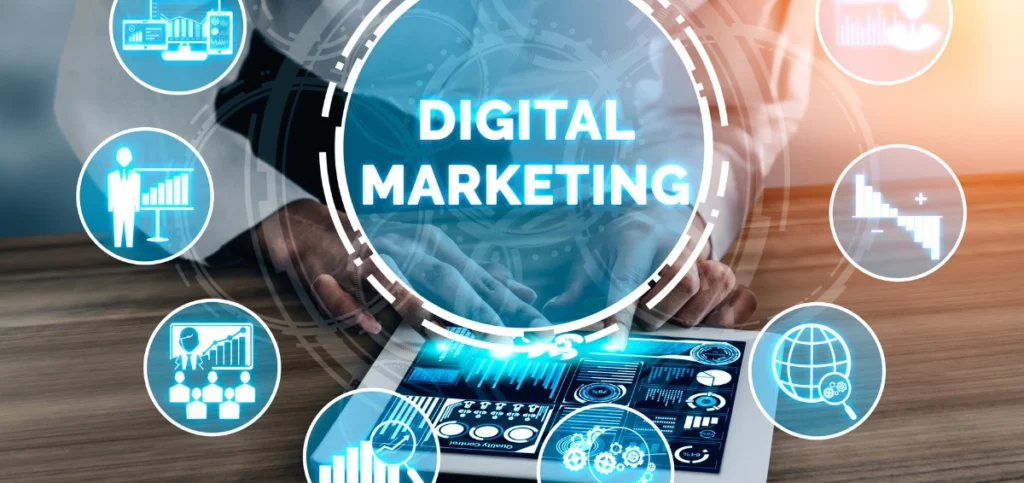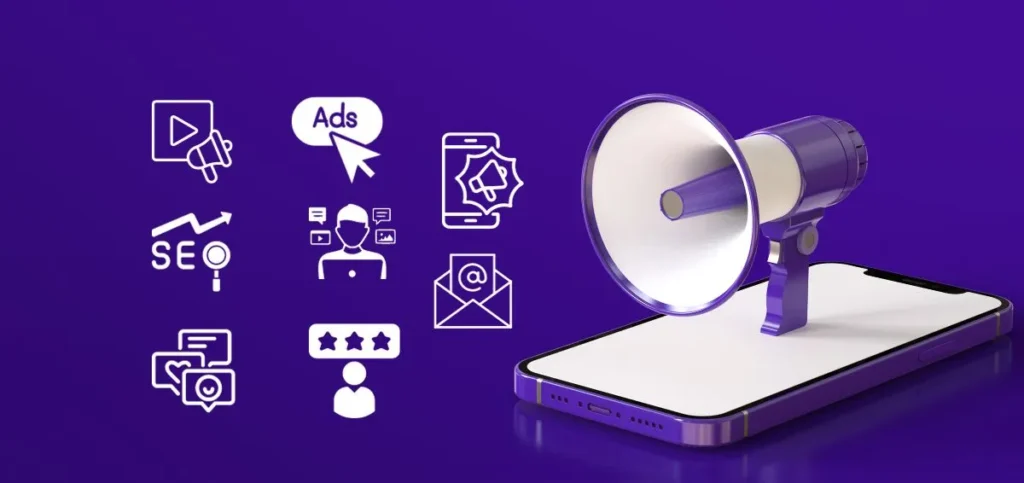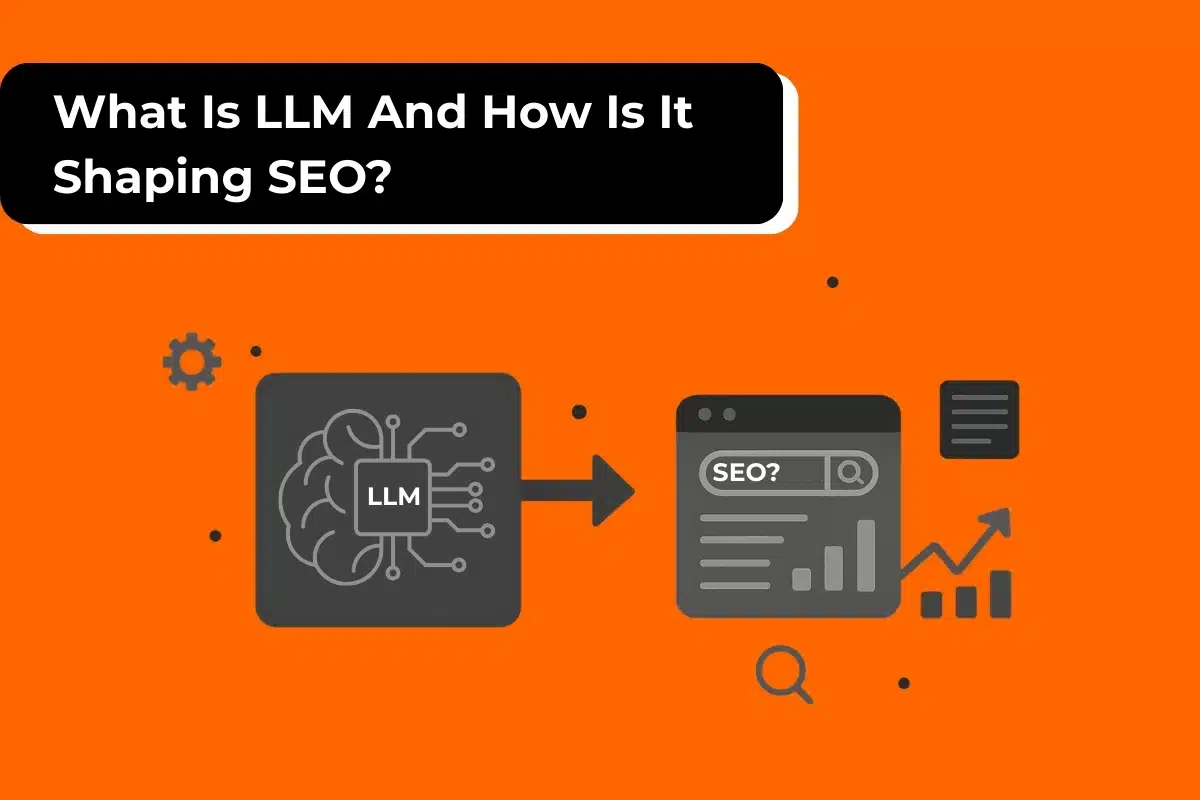Globally, businesses are projected to spend an estimated US $695.96 billion on digital marketing in 2024. The imperative behind this substantial investment lies in the transformative impact digital marketing wields in fostering business growth.
In the ever-evolving landscape of technology, businesses are navigating shifts with strategic adaptations. Traditional brick-and-mortar establishments are either embracing robust online marketing strategies or intensifying their efforts, allocating increased resources to digital marketing initiatives. These maneuvers are meticulously tailored to tap into the burgeoning and lucrative online market.
The efficacy of attracting online consumers now marks the line between business success and failure. A business’s digital presence, especially through a high-quality website that transforms leads into customers, becomes the linchpin of a powerful digital marketing strategy. This approach acts as a catalyst for heightened brand awareness, lead acquisition, and personalized customer engagement.
In the realm of digital marketing, the strategic use of a diverse array of tools and techniques is crucial for business owners. This strategic utilization empowers businesses to deftly navigate complex and competitive landscapes, fostering growth and optimizing ROI.
Now, Let’s Delve into the Essence of Digital Marketing

Digital Marketing encompasses strategic promotional activities utilizing digital technologies and the Internet. Essentially, any marketing endeavor existing online falls under the ambit of digital marketing. This paradigm shift in marketing practices gained prominence with the escalating reliance on the internet.
The rationale is simple: the pervasive accessibility of the internet, primarily through mobile devices, has reshaped consumer behavior, rendering traditional advertising and outreach methods less preferable. Various facets of digital marketing, such as social media, email marketing, SEO marketing, and affiliate marketing, serve as conduits for connecting with a wider audience.
For businesses aiming to carve a digital footprint, the initial step involves strategic planning to ascertain the most effective digital marketing channels. Today, businesses are no longer fixated on survival; it’s about growth. Without a robust digital marketing strategy aligned with the prevailing digital landscape, enhancing visibility and consumer awareness become formidable challenges. The mere existence of a business may elude consumer knowledge.
Why is Digital Marketing Crucial for Business Growth?
Curious about how digital marketing contributes to business expansion? Unless you’ve been living under a rock, you’re likely aware of its significance in today’s business landscape, particularly in building brand awareness. Virtually every business has a website, and those that don’t, at the very least, incorporate a digital ad strategy or maintain a social media presence.
Digital marketing and content have become ingrained in consumer expectations, serving as a primary source for learning about brands. When executed effectively, digital marketing provides numerous advantages to businesses of all sizes, offering versatility and a plethora of strategies, allowing marketers to be creative even on a budget.
Components of Digital Marketing

From marketing automation and research to tactical activities like pay-per-click ads, there are many different components of digital marketing plans.
1. Online advertising
This method involves bidding and buying ad units on third-party sites that are relevant to the products you sell–display ads in forums, display ads for blogs, and so forth. Types of ads include images, stories, pop-ups, banners, and videos. Retargeting is another important aspect of digital advertising; it requires a code that places an anonymous browser cookie to track any new visitor to your website. Then, when the users navigate other sites, this code helps to serve them with ads for your products or services on those sites alike. In this way, your advertising is tightly focused on people who have already shown some interest in your business.
2. Content Marketing
This important strategy can bring potential customers to your platform. Publishing a steady stream of high-quality, relevant content online will help establish thought leadership. Content can educate targeted customers on what kinds of problems your product can help solve. It also boosts your SEO rankings. Different content formats in forms such as blog posts, case studies, whitepapers, and others add value to your target audience. These digital content assets can be used to acquire customers through organic and paid efforts.
3. E-mail Marketing
Email is a direct marketing method that involves sending promotional messages to a segmented group of prospects or customers. Email marketing continues to be an effective approach for sending personalized messages that target customers’ needs and interests. It is also used as an ecommerce means of staying top of mind for consumers, most often expressed by those doing small online retailing.
4. Mobile Marketing
This refers specifically to promoting products and services on mobile phones and other handheld and wireless referred to as mobile advertising by text message or in downloaded applications. But a truly all-encompassing marketing strategy also demands you optimize websites, landing pages, e-mails, and content to offer the best possible user experience on mobile phones or other handheld or wireless devices.
5. Paid Search Marketing
Paid search makes your products/services more visible in the search engines. If a company wants, it can bid on a specific keyword or group of keywords and buy placement for advertising spots in search engine results. The ads will be shown only to users who are actively seeking your offerings using the keywords. Paid search advertising comes in two forms–PPC (Pay-Per-Clck) and CPM (Cost-Per-Mille). With Pay-Per_click, you pay only when someone clicks your ad. With CPM, you pay based on how many times your ad is seen. Google Adwords is the most popular PPC program. Nevertheless, other browsers, such as Bing, do offer paid searches alike.
6. Programmatic Advertising
This is the method of automatically bidding for digital advertising. When someone visits a website, this profile data undergoes an auction process and bidding from competing advertisers. Programmatic advertising gives more control to you than ever before over which sites display your ads and also who is viewing them. This means that now your campaign can be geared toward a higher conversion rate of interested leads into customers.
7. Online Reputation Marketing
This is what helps promote favorable online reviews of your brand/ products/ services. There are significantly fewer people who buy a product without checking its online reviews. This, as is, does impact consumer’s purchase intent. This is also a component of your brand and product reputation. A marketing plan aimed at improving your brand reputation online will ask for positive reviews to be posted to different review sites. A number of these review websites also offer local advertising that allows companies to put advertisements on the profiles of their competitors.
8. Search Engine Optimization (SEO)
SEO aims to enhance the traffic to your website through organic searches. These represent both technical and creative strategies to improve rankings (and bring about more awareness) in search engines. Google, Bing, and Yahoo are today’s three most popular search engines. Most digital marketing managers strive to maintain optimization levers such as keywords, crosslinking, and backlinking using original content to boost SEO rankings for a website.
9. Social Media Marketing (SMM)
Social media marketing is an element of digital marketing. Facebook, Pinterest, Instagram, LinkedIn, and YouTube are online platforms for which marketing managers pay to engage potential customers. A digital marketing campaign often includes organic activities combined with advertisements on key social media services to provide coverage to more target audiences and raise the brand’s profile for days, weeks, or even months at a stretch.
10. Video Marketing
This method lets companies interact with customers on a more personal and visual level. Moreover, you can introduce new products, host events, feature special announcements, and provide testimonials from satisfied users of your products or services. The most common platform for sharing video advertisements on YouTube and their links is probably Vimeo, but the future might hold other platforms capable of diffusing your message. Pre-roll advertising (shown before a video starts—typically the first 10-15 seconds or more) is another way of reaching your target video audience.
11. Search Engine Marketing (SEM)
This involves promoting and marketing a business or brand using paid advertisements–which are displayed on search engine results pages (SERPs). You must pay Google if you want your ads to appear in the search results. This area of digital marketing helps capture people who are interested in your offerings at the right time and find their specific demands, thus favoring lead generation. Full digital marketing, campaign analysis, and success monitoring are all possible.
12. Analytics
This is a method that allows Digital marketers to observe what users do online. This data capture and analysis is the basis of digital marketing because it offers businesses powerful insights into their online buyers’ behavior, browsing behavior, what they tend to search for most actively, and their preferences. The most widely used tool for website traffic analysis is Google Analytics, but there are other tools such as Adobe Analytics, Crazy Egg, Semrush tools, Glassbox, Coremetrics, and so forth.
How does Digital Marketing Help Businesses Grow?

Today’s consumers invest a substantial portion of their time online. Digital marketing seizes this opportunity and deploys diverse platforms and marketing strategies to engage with the target audience. Whether the business operates online or is a brick-and-mortar set-up, digital marketing is an invaluable enhancement to your branding and marketing endeavors. Here are the top 6 ways how digital marketing helps in business growth.
1. Helps Target Your Audience with Precision
When it comes to targeting ads and content to specific audience segments, digital marketing is very effective. Using demographics, location data, past purchase behavior, or even user interests as guides, businesses can customize their message with accuracy. In contrast to traditional marketing methods where one-size-fits-all no longer works, clients need fine-grain precision in today’s digital era. Digital marketing offers the freedom to tweak targeting parameters at any time during a campaign.
2. Establishes a Brand Identity
If a business can deliver on its commitments to its intended audiences, it plays a crucial role in building a brand reputation. This further aids in gaining the trust and confidence of end-users and fostering stronger and improved relationships with them.
Brand recognition is one of the most robust (and frequently underestimated) components of a successful digital marketing campaign. Happy clients will undoubtedly share positive experiences with others, opening up novel arenas and broader markets for the business.
Whether your business is diminutive or extensive, digital marketing solutions can assist an organization in building a reliable brand identity.
3. Boosts Visibility Cost-Effectively
Small and medium enterprises lack substantial funds to allocate to diverse marketing channels. Television advertisements come with hefty expenses, as do the fees for billboards and print advertisements.
Not all businesses have extensive funds to invest in promoting their business. This is where Digital advertisements assume a significant role. Digital marketing strategies do not demand substantial capital, and they possess the capability to reach a broader target audience at a reduced cost.
Digital Media Marketing solutions offer businesses enhanced and notably cost-efficient marketing channels that communicate more effectively, converting a large number of target audiences.
4. Increases Revenue
A successful digital marketing strategy yields increased conversion rates, ultimately driving increased revenues. Digital marketing strategies contribute to generating significantly higher revenue compared to various conventional marketing channels.
Per Google, businesses that have integrated digital marketing strategies exhibit a 2.8 times higher growth expectancy in revenue. Companies utilizing digital marketing have a 3.3 times likelihood of expanding their workforce and business.
5. Enhances ROI
As previously indicated, efficient digital marketing strategies contribute to elevating a company’s brand value and revenues. Likewise, it also aids in producing an Enhanced Return on Investment (ROI) compared to conventional marketing. The approaches of digital marketing are straightforward to track. Also, it enables you to assess the tangible outcomes for the influence on your targeted audience.
The pivotal element of a thriving digital marketing strategy is to generate a consistent flow of traffic that can be transformed into leads. The higher the traffic generated, the faster the return on your investment will be.
6. Elevates Global Outreach
Businesses with a clear and well-structured digital marketing strategy are more likely to connect with millions of online users.
Anyone using the Internet in any format is a potential customer for a business. As per statistics, nearly 75% of Google Chrome users currently have Internet access on their mobile devices.
Wrapping Up
Digital marketing has brought about a revolutionary era for businesses. It has enabled the targeting of consumer needs effectively and speedily. A composite strategy — doing competitors ‘research, offering incentives for shopping, and access to a white-label series of services – gives businesses an advantage in a competitive space. This way, diligent work is accompanied by experience, expertise, and integrity, providing a path to growth and success year after year.
If you are looking for a reputed and top-notch digital marketing agency that will create a successful digital marketing campaign for your business, contact us today.






